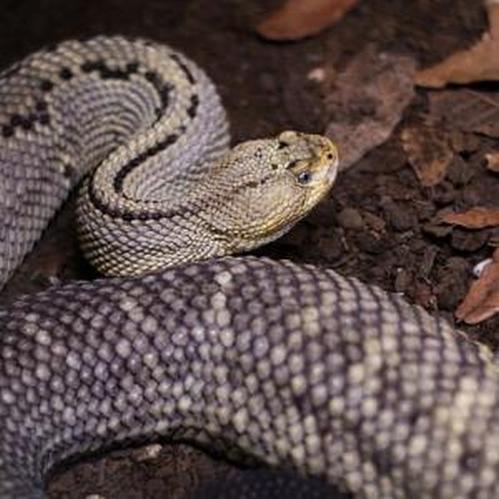

99TravelSafe.com
65 – Threat and Danger from Snakes!


The Website For The Smart and Savvy Traveler
AT any given time in any location, a person can encounter a snake!
The very extreme cold climates tend to be less suitable for any enduring population of snakes.
Be aware of your surroundings at all times. Don't just blindly wander through woods, weeds, trails, bushes, and the like.
Avoid specific snake habitats like brush piles, debris mounds, logjams, root systems, abandoned buildings and watery areas,
Wear leather shoes or boots at least ankle high or better when walking in suspected snake country.
Never sit or climb, or step over obstacles anywhere without first looking carefully prior to taking the move!
Observation is critical to avoidance - learn to check around with a sweeping glance for anything that seems out of place, for this may be your subconscious notice of a camouflaged critter lurking close by.
When you are near water of any kind, be aware that many species "hang out" there and will likely be quite hidden from view while they are sleeping or hunting - just be more alert!
Remember that snakes have needs for shelter, water, and food basically in that order just to survive, so be aware of these "needs" and be alert when these factors are present in any combination. Learn to recognize food favorites of the species in your area.
Try not to stalk along quietly as snakes have many sensing devices to warn them of your presence - let these work freely with noise, movements, etc. and thus NOT make the snake think it may be the target of a predator when it would need to become MORE aggressive!.
Take a pet along on outings since these animals have a much more effective set of senses when it comes to snakes.
When a snake is spotted, leave it alone! So many bite victims have chosen to hit the snake or try to catch it.
Remember, where there is one, there are LIKELY others! Be alert!
Learn basic snakebite first aid. Prepare yourself and always expect the unexpected
Be in tune with your environment - know that most critters, including snakes, try to avoid human contact. Practice skills that make you more aware of what is happening and what critical conditions are present as you move through the fields and streams!
Do not step or put your hands where you cannot see!
Wear over-the-ankle boots, thick socks and long loose pants, especially when venturing off of heavily used trails.
Tap ahead of you with a walking stick before entering an area where you can not see your feet. Snakes will try to avoid you! if given enough warning!
Remember to;
-- Do NOT put your hands where you can't see, and avoid wandering in the dark!
-- If you see a snake, remain calm and stand still!
--Allow the snake to leave on its own.
-- Step ON (top of) rocks and branches INSTEAD of OVER (across) them, as snakes hide behind these to attack!
-- Move slowly, quick movements can be mistaken for attacks.
-- NEVER pick up a snake, even if it is dead, snakes can retain their bite reflex for up to an hour.
-- Wear protective clothing such as long pants and boots in areas where there are snakes. You can also wear gaiters or leggings to protect your legs.
-- If you're out at night, use a flashlight because most snakes are active on warm nights!
If someone is bitten by a snake, one should;
-- Call one's local emergency number (like 911). If possible, call ahead to the emergency room so antivenom can be ready!
-- Move away from the area where the bite occurred.
--Remove constricting items like tight clothing, rings, or watches from the bitten area.
-- Apply a pressure immobilization bandage to stop the spread of venom.
-- Cover the bite with a clean, cool compress or moist dressing.
-- Monitor breathing and heart rate of the bitten person!
-- Don't apply ice or a tourniquet to the bite.
-- Do NOT try to suck out the venom out of the bite.
-- At the emergency room, the person may receive antibiotics to prevent or treat infections along with pain medication and Antivenin (antivenom), a special medicine to treat the bite
